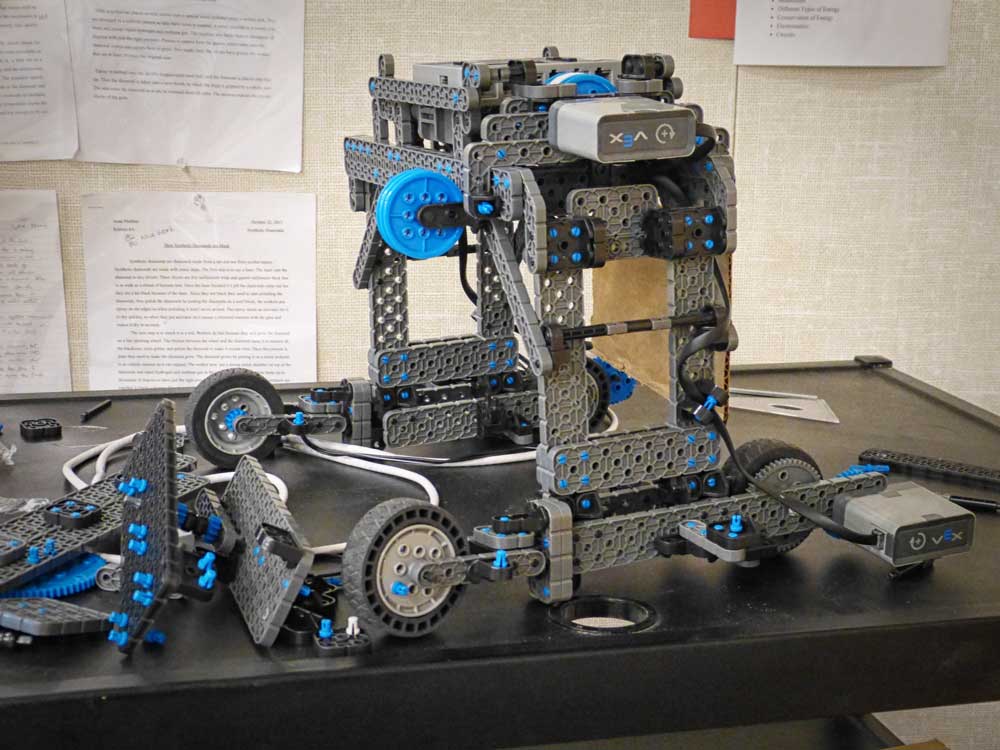
As the school year winds down, many parents find themselves wondering: How can we keep our children engaged, curious, and growing academically over the summer without turning every day into a battle over screen time or boredom? The good news is that with thoughtful planning and the right mix of activities, summer can be a time of growth, enjoyment, and building memories.
At The Dorris-Eaton School, we believe summer should support the whole child—mind, body, and character. Below are practical, parent-friendly strategies for creating a summer plan that balances structure with flexibility, academics with play, and enrichment with exploration.

Summer
Prevent Learning Loss with Enrichment Programs
Summer learning loss, often called the "summer slide," refers to the academic regression many students experience during long breaks from school. The effects are especially notable in reading comprehension and math skills. However, you can counter this slide by exploring Dorris-Eaton’s enrichment programs, which are thoughtfully designed to keep students learning and engaged.
Enroll in Enrichment Programs:
- Language Arts: Reading and writing classes strengthen vocabulary, comprehension, and creative expression. Programs like those at Dorris-Eaton focus on helping students maintain and deepen their literacy skills over the summer.
- STEM & Engineering: Hands-on classes in robotics, engineering, and coding teach children to solve problems, think critically, and collaborate with others. These subjects don't just build knowledge—they build confidence.
- Math: Even short sessions reviewing foundational math concepts can make a difference. Consider programs that reinforce number sense, logic, and mental math in applied settings such as a chess class.
- Theatre: Acting workshops help strengthen verbal skills which facilitate self-expression and the ability to convey thoughts and feelings.
Why it matters: Studies show that children who engage in structured learning for even a few hours a week during summer experience less academic backslide and start the school year with greater readiness and confidence.
Stay Active for Physical and Mental Benefits
Academic development and physical wellness go hand in hand. Physical activity is not only vital for healthy bodies—it supports mental clarity, emotional regulation, and even cognitive performance.
Incorporate a variety of activities:
- Team sports like soccer, baseball, and basketball build collaboration, communication, and sportsmanship.
- Individual pursuits such as swimming, tennis, or martial arts promote self-discipline and goal-setting.
- Try something new: Fencing, horseback riding, or archery can ignite new passions and build self-esteem.
Make it routine: Whether it's a morning bike ride, a weekly swim class, or daily park time, consistency is key. Build movement into the daily rhythm so it becomes a natural part of summer.
To support overall well-being, camps offer children a dynamic way to stay physically active while building social-emotional skills in a safe and engaging environment.
Bonus benefit: Regular exercise supports focus and calms the mind, preparing children for more effective learning when they return to the classroom.
Embrace Unstructured Time and Let Boredom Be a Teacher
In a world filled with constant stimulation, unstructured time has become underrated—but it's essential for creativity, emotional resilience, and independent thinking.
Let go of the schedule sometimes:
- Free play encourages imagination, self-direction, and problem-solving. Whether it’s building a fort, making up a game, or drawing for hours, these activities build valuable soft skills.
- Limit screens: Create opportunities for offline play. Encourage reading for pleasure, building, storytelling, or crafting.
- Support independent decision-making: When children feel "bored," don’t rush to fill the gap. Instead, ask questions like, "What do you want to do with your time?" or, "What haven’t you tried yet?"
Expert insight: Dr. Teresa Belton, a leading child psychologist, notes that boredom plays a vital role in developing creative thought and self-awareness.
Create a Balanced Summer Plan With Your Child
Planning summer doesn’t need to be a top-down process. Inviting your child into the discussion fosters autonomy and motivation.
Build the plan together:
- Start with goals: What does your child want to learn or try this summer? What areas would benefit from extra practice?
- Mix it up: Blend academic practice, creative pursuits, outdoor play, family outings, and downtime. Post the plan somewhere visible and revisit it weekly.
- Be flexible: The best summer plans are structured but adaptable. Don’t be afraid to change things up based on energy, interest, or weather.
This kind of collaborative approach aligns with Dorris-Eaton’s educational philosophy, which values partnership between families and educators to nurture a child’s independence and intrinsic motivation.
The result? A child who feels ownership over how time is spent is more likely to stay engaged throughout the summer.
Make This Summer Count
At The Dorris-Eaton School, we believe summer is a unique opportunity to nurture children’s growth in new and exciting ways. Whether it’s diving into a new book, joining a robotics class, or simply lying under a tree imagining new worlds, every day offers a chance to grow.
This summer, let’s trade regression for renewal, and monotony for meaning.
Your child's summer can be more than a break—it can be a breakthrough.

